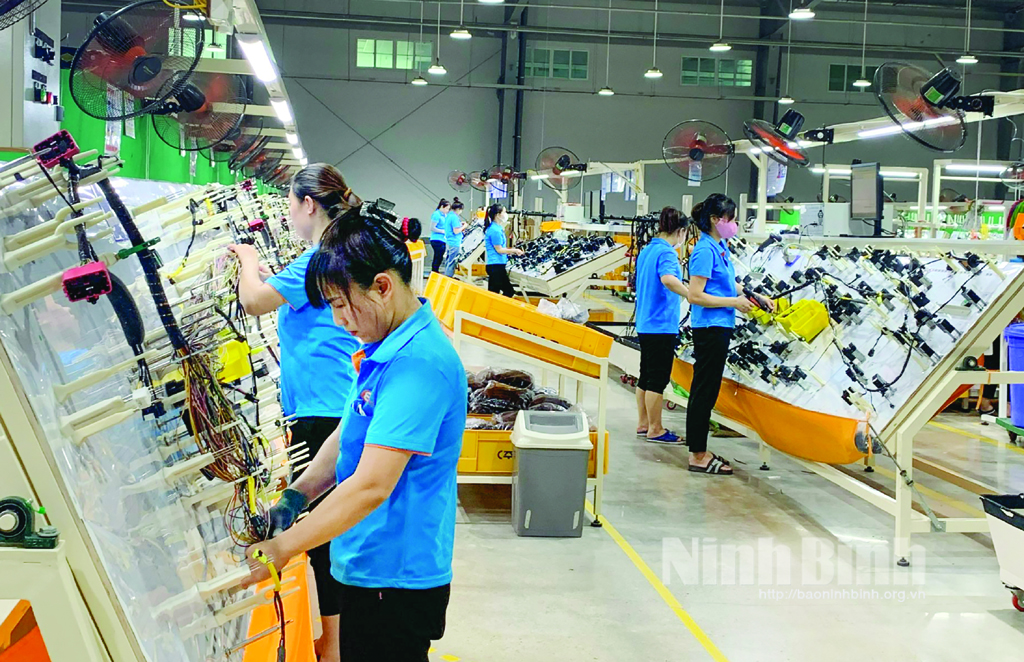Ninh Binh steps up investment promotion for supporting industries

To date, industrial zones and clusters in the province have attracted 47 projects in the field of supporting industry, including 26 projects serving automobile assembly and manufacturing; 13 projects for the electronic industry; one project for the textile and garment industry, and seven others for the mechanic sector. However, these supporting industry firms have contributed just a small part in production lines of local enterprises.
Currently, the province's processing and manufacturing industry, especially the footwear, textile-garment, automobile assembly and manufacturing, and electronic sectors, mainly depends on imported raw materials and components.
The COVID-19 pandemic has caused great impacts on local industries. The disruption of global supply chains has made domestic enterprises unable to achieve self-reliance in production activities.
Besides, the long-term trade deficit has reduced the added value of industrial production.
In a bid to implement the Government's Resolution 115/NQ-CP on solutions to step up the development of supporting industries, Ninh Binh has paid more attention to drawing strategic investors whose projects use green industry, hi-tech and modern technology, and clean and environmentally-friendly technology, creating products with high added values and contributing greatly to the budget, using less land and labour.
It has also given priority to projects on constructing infrastructure in industrial zones; automobile assembly and manufacturing, supporting industries, logistics and manufacturing industry.
In particular, as the national economy is returning to the new normal, the province has actively improved its investment promotion work, maintained and stepped up the current diplomatic relations and expanded ties with other countries and regions like Japan, the Republic of Korea, the US and the EU to attract more FDI capital.
In the coming time, Ninh Binh will continue to issue special mechanisms to aid supporting industry projects. At the same time, it will improve the quality of the workforce for supporting industries, and expand training cooperation with domestic and foreign establishments.
Translated by Nguyen Thuy


